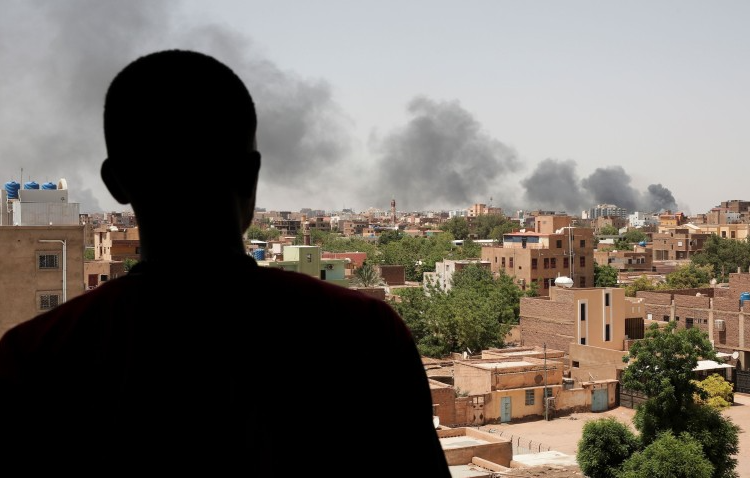Sudan, and in particular, its capital Khartoum, is no longer safe. That much is certain. Since fighting broke out between the Sudanese Armed Forces and the militia, Rapid Support Forces, virtually no one has been able to move about freely with most people, foreigners, diplomats and citizens alike choosing to flee. Early this week, Mohamad El-Gharawi, the assistant administrative attaché at the Egyptian embassy in Khartoum, was killed according to a statement by the Egyptian Ministry of Foreign Affairs. There had been other reports that a military attaché had been killed which the Egyptian government denied.
They are not the only ones who have come under attack while this conflict between Sudan’s top Generals rages. A United States’(US) diplomatic convoy came under fire in Sudan on April 17, two days after fighting broke out in the struggle for power between General Abdel Fattah al-Burhan of the Sudenese Army and Hamdan Dagalo, leading the Rapid Support Forces. US Secretary of State, Antony Blinken described the attack on the convoy as reckless, irresponsible and unsafe.
In the early days of the conflict, the European Union (EU’s) ambassador in Sudan, Aidan O’Hara was also assaulted at his home in the capital, Khartoum. According to the Irish Foreign Minister, Micheál Martin, Mr O’Hara was not seriously hurt. The minister, however, described the attack as a “gross violation of obligations to protect diplomats”. The assaults on these diplomats show the nature of the conflict and the willingness of the warring factions to use diplomats as a means of increasing pressure on the other side. It, therefore, came as no surprise when the United Sates decided to pull out its diplomats and close the embassy in Khartoum. Since then, an exodus of foreign nationals has followed. It has been reported that Blinken concluded that there was no choice but to evacuate the embassy and temporarily close it after it became clear that the U.S. Embassy, located in the Soba district of south Khartoum, could no longer count on steady access to food, fuel, and power.
The one diplomat that intends to stay in Khartoum is the United Nations head of mission, Volker Perthes who will remain in Sudan to continue to work towards resolving the current crisis and returning to the UN mandated tasks. That is according to a statement by the world body. Some 700 UN staff, aid workers, diplomats and their families have, however, been evacuated.
As a newspaper, the most we know about Nigerian diplomats working in Sudan is that, “we can’t evacuate all our diplomatic staff at the moment because they need to also coordinate the evacuation of all those students that we’re talking about.” Nigeria’s Foreign Minister, Godfrey Onyeama said this a few days ago during a television interview.
In spite of this statement, nothing has been heard from Nigeria’s Ambassador to Sudan, Safiu Olaniyan or his whereabouts. It would be understandable for the government to evacuate its top diplomat from what is clearly turning out to be a war zone. But this should be communicated to Nigerians rather than give false hope to the thousands of her citizens stranded in a foreign land. From media reports, the Nigerian Emergency Management Agency (NEMA) is coordinating with the Embassy in Egypt as part of efforts to evacuate an estimated 5000 Nigerian students in Sudan. The management of information by the Nigerian government, particularly Godfrey Onyeama and the Foreign Affairs Ministry has been appalling. There were media reports of a letter from the embassy in Sudan signed by the charge d’Affaires demanding for buses. The problem with the letter was that it was addressed to no one in particular.
Again, students were asked to converge at a particular point in Khartoum for evacuation on Tuesday no official of the embassy showed up. Similar reports indicate that the Nigerian government has hired 40 buses to transport the students to Egypt. Yet, there is a bidding war to hire buses in Sudan. The United Nations and E.U countries have been outbidding one another to hire buses that will transport them to safety. If it is not too much to ask, we believe that Nigeria can send military transport planes to Ethiopia or Egypt to help evacuate some of these students even though there seems to be little communication between the Nigerian government and the countries bordering Sudan. A group of Nigerian students reportedly made their way to the border with Ethiopia only to be denied entry because they did not have the required visas. It would have been expected that Onyeama would have reached out to his Ethiopian counterpart within minutes of the story breaking. But nothing has been heard from the minister. Meanwhile, some 5000 students are caught in the middle of a war with the hope that help is coming.





